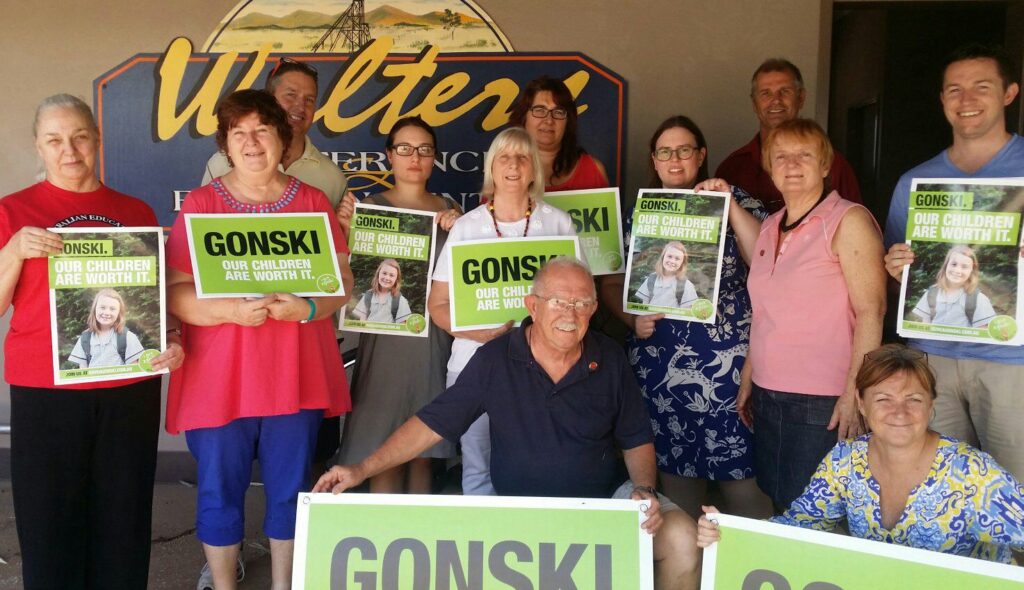With federal and Territory elections approaching, many members have asked about your right to be involved in political campaigns and express political opinions, and how these are affected by your responsibility as a public servant.
We have produced the following advice (with thanks to the CPSU, from which much of this information is drawn) for our members employed in the NT public sector. Remember that this is general advice and does not cover all scenarios. If you have a question, contact the union.
All NTPS employees need to comply with the Code of Conduct. This sets out some the responsibilities of NTPS staff. Remember that you also have rights enshrined in other laws such as the Fair Work Act and the Anti-Discrimination Act, both of which prohibit discrimination based on political opinion.
Individual Comment
According to the Code of Conduct: “Generally, no matter what jurisdiction or level of election, NTPS employees have the same rights of free speech and independence in the conduct of their private affairs as every other member of the public”.
The Code of Conduct notes that comment that is ‘sufficiently strong or persistent to give rise to the public perception that the Public Sector Officer is not prepared to implement or administer the policies of the Government of the day as they relate to his or her duties” may be a breach of the Code of Conduct. Obviously, the more relevant your position is in giving impartial advice to the Government of the day and its Ministers, the more important this clause becomes.
Stay safe and smart: In practice, this means you should not campaign during work time, use work resources for campaigning, or behave in a way that might infer that your political campaigning is a part of your official duties or that your employer supports your political views. For example, you shouldn’t hand out election material or wear clothing with political messages while at work.
Your time, your rights: You are free to do any of the following in your own time:
COMMUNITY ACTIVITIES:
- Attend political rallies or events
- Participate in phone calls, door-knocking and other volunteer campaign work
- Display campaign posters on your property
- Hand out how-to-vote cards on election day
WORKPLACE ACTIVITIES:
- Attend union meetings to discuss issues such as Gonski school funding
- Discuss union issues with colleagues
- Receive and read union information and emails
Social media
The NTPS has guidelines viewed by unions as unreasonably restrictive. Even under these guidelines, employees may make private comment only as any “Official comment on behalf of the agency should be made only by those employees authorised to do so”. Clearly there is a need to ensure your comment cannot be construed as being made on behalf of anyone except yourself.
As an NTPS employee, you should avoid posting social media comments on policies that are directly related to the agency you work in, but you can “like” or “share” such posts. As a general rule we advise members to remove any information about which agency they work for from their social media profiles, so as to avoid any suspicion that you are easily identifiable as an NTPS employee and are acting on behalf of the agency.
In all forums, it’s common sense to avoid any personal, malicious or defamatory statements.
Do the guidelines apply if I use a pseudonym? Yes. The guidelines say that employees must still uphold the NTPS Code of Conduct, even when material is posted anonymously, or using a pseudonym. In all events, do not use the employer’s resources, servers or time when engaging in comment.
So what can I do online? As a general rule, liking and sharing posts is safer than commenting on them. In an unofficial capacity and in your own time, members should feel free to like and share posts which are not offensive (racist, violent, sexual or defamatory). You should be more careful with comments, as social media conventions take comments on other people’s posts as a direct personal comment by you.
Bear in mind that even a private comment by you can be shared by those with access to your page and their settings may be public. Anyone with access to your page can take a screenshot of your comment or post and share it with others. So exercise caution.
Need more?
If you feel you are being unfairly treated at work in relation to expressing your democratic rights, or simply require clarification, please contact us immediately.


